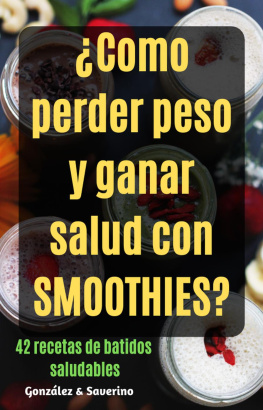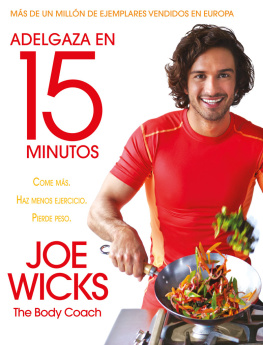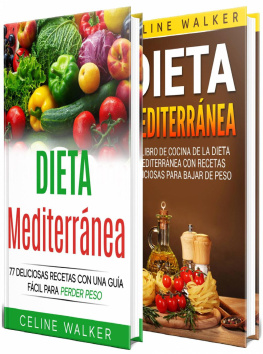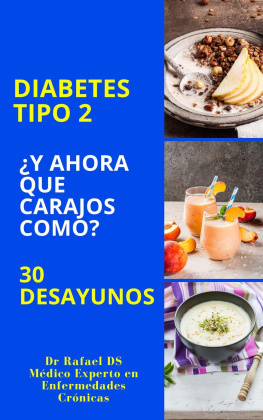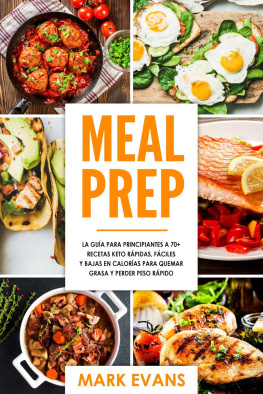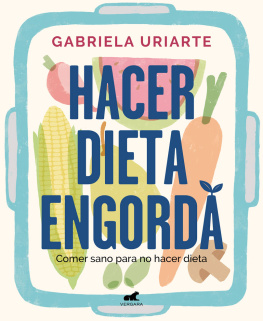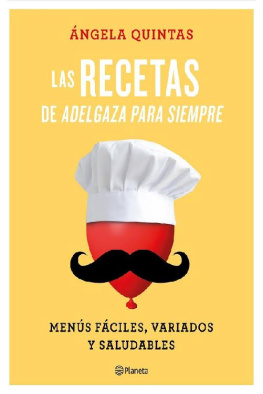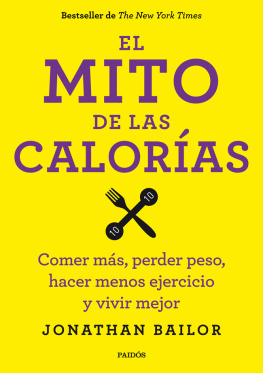Notas
Primera parte
U. Ravnskov et al., “The questionable benefits of exchanging saturated fat with polyunsaturated fat”, Mayo Clin Proc, abril de 2014, 89(4): 451-453.
L. I. Lesser et al., “Relationship between funding source and conclusion among nutrition-related scientific articles”, PLoS Med, enero de 2007, 4(1): e5.
Resumen ejecutivo. Dietary Guidelines for Americans, 2015-2020, 8ª ed., Office of Disease Prevention and Health Promotion. https://health.gov/dietaryguide lines/2015/guidelines/executive-summary/.
“Chronic diseases: the leading cause of death and disability in the United States”, Centers for Disease Control and Prevention. Actualizado el 28 de junio de 2017. https://www.cdc.gov/chronicdisease/overview/.
“Effects of health care spending on the U.S. economy”, Office of the Assistant Secretary for Planning and Evaluation, US Department of Health and Human Services, 22 de febrero de 2005. https://aspe.hhs.gov/basic-report/effects-health-care-spending-us-economy.
C. E. Basch, “Healthier students are better learners: a missing link in school reforms to close the achievement gap”, J Sch Health, octubre de 2011, 81(10): 593-598.
“Too fat to fight”, Council for a Strong America, 10 de abril de 2010. https://www.strongnation.org/articles/23-too-fat-to-fight.
-system/industrial-agri culture/hidden-costs-of-industrial.html#.WSIrTDOZNPM.
N. Gilbert, “One third of our greenhouse gas emissions come from agricul- ture”, Nature, octubre de 2012. http://www.nature.com/news/one-third-of-our- greenhouse-gas-emissions-come-from-agriculture-1.11708.
F. Lawrence, “Omega-3, junk food and the link between violence and what we eat”, Guardian, 17 de octubre de 2006. https://www.theguardian.com/politics/ 2006/oct/17/prisonsandprobation.ukcrime.
M. Nestle, “Food marketing and childhood obesity: A matter of policy”, N Engl J Med, 15 de junio de 2006, 354(24): 2527-2529.
D. A. Kessler, “Toward more comprehensive food labeling”, N Engl J Med, 17 de julio de 2014, 371(3): 193-195.
K. R. Siegel et al., “Association of higher consumption of foods derived from subsidized commodities with adverse cardiometabolic risk among US adults”, JAMA Intern Med, 2016, 176(8): 1124-1132.
K. R. Siegel et al., “Association of higher consumption of foods derived from subsidized commodities with adverse cardiometabolic risk among US adults”, JAMA Intern Med, 2016, 176(8): 1124-1132.
K. D. Brownell y D. S. Ludwig, “The Supplemental Nutrition Assistance Program, soda, and USDA policy: who benefits?”, JAMA, 2011, 306(12): 1370-1371.
N. Teicholz, “The scientific report guiding the US dietary guidelines: is it scientific?”, BMJ, 2015, 351: h4962.
E. A. Finkelstein et al., “Impact of targeted beverage taxes on higher and lower income households”, Arch Intern Med, 2010, 170(22): 2028-2034.
M. Nestle, “New study: Big Food’s ties to registered dietitians”, Food Politics, 22 de enero de 2013. http://www.foodpolitics.com/2013/01/new-study-big-foods-ties-to-registered-dietitians/.
The Daniel Plan. http://www.danielplan.com/.
L. Rapaport, “Antibiotics in animal feed may endanger kids, doctors warn”, Scientific American, 16 de noviembre de 205. https://www.scientificamerican.com/article/antibiotics-in-animal-feed-may-endanger-kids-doctors-warn/.
D. Schillinger y M. F. Jacobson, “Science and public health on trial: warning notices on advertisements for sugary drinks”, JAMA, 2016, 316(15): 1545-1546.
N. Gilbert, “One-third of our greenhouse gas emissions come from agricul-ture”, Nature, 31 de octubre de 2012. https://www.nature.com/news/one-third-of-our-greenhouse-gas-emissions-come-from-agriculture-1.11708.
D. S. Ludwig et al., “High glycemic index foods, overeating, and obesity”, Pediatrics, marzo de 1999, 103(3): E26.
B. E. Millen et al., “The 2015 Dietary Guidelines Advisory Committee Scientific Report: development and major conclusions”, Adv Nutr, 16 de mayo de 2016, 7(3): 438-444.
D. K. Tobias et al., “Effect of low-fat diet interventions versus other diet interventions on long-term weight change in adults: a systematic review and meta-analysis”, Lancet Diabetes Endocrinol, diciembre de 2015, 3(12): 968-979.
C. B. Ebbeling et al., “Effects of dietary composition on energy expenditure during weight-loss maintenance”, JAMA, 27 de junio de 2012, 307(24): 2627-2634.
D. S. Ludwig y W. C. Willett, “Three daily servings of reduced-fat milk: an evidence-based recommendation?”, JAMA Pediatr, septiembre de 2013, 167(9): 788-789.
R. Chowdhury et al., “Association of dietary, circulating, and supplement fatty acids with coronary risk: a systematic review and meta-analysis”, Ann Intern Med, 18 de marzo de 2014, 160(6): 398-406.
C. E. Ramsden et al., “Use of dietary linoleic acid for secondary prevention of coronary heart disease and death: evaluation of recovered data from the Sydney Diet Heart Study and updated meta-analysis”, BMJ, 4 de febrero de 2013, 346: e8707.
Segunda parte
Carne
R. Chowdhury et al., “Association of dietary, circulating, and supplement fatty acids with coronary risk: a systematic review and meta-analysis”, Ann Intern Med, 18 de marzo de 2014, 160(6): 398-406.
S. van Vliet, N. A. Burd y L. J. van Loon, “The skeletal muscle anabolic response to plant-versus animal-based protein consumption”, J Nutr, septiembre de 2015, 145(9): 1981-1991.
K. A. Whalen et al., “Paleolithic and Mediterranean diet pattern scores are inversely associated with all-cause and cause-specific mortality in adults”, J Nutr, 8 de febrero de 2017.
A. Scheu et al., “The genetic prehistory of domesticated cattle from their origin to the spread across Europe”, BMC Genet, 28 de mayo de 2015, 16: 54.
L. Cordain et al., “The paradoxical nature of hunter-gatherer diets: meat-based, yet non-atherogenic”, Eur J Clin Nutr, marzo de 2002, 56, (supl. 1): S42-S52.
F. Newport, “In U.S., 5 percent consider themselves vegetarians”, Gallup, 26 de julio de 2012.
C. Leu, “Know your meat—and bugs: introducing the periodic table of protein”, Wired, julio de 2016. https://www.wired.com/2016/07/sustainable-proteins/ #slide-1.
G. C. Nelson, Genetically Modified Organisms in Agriculture: Economics and Politics, 1ª ed., San Diego, CA, Academic Press, 2001.
K. C. Hayes, “Saturated fats and blood lipids: new slant on an old story”, Can J Cardiol, octubre de 1995, 11, (supl. G): 39G-48G.
D. M. Dreon et al., “Change in dietary saturated fat intake is correlated with change in mass of large low-density-lipoprotein particles in men”, Am J Clin Nutr, mayo de 1998, 67(5): 828-836.
P. W. Siri y R. M. Krauss, “Influence of dietary carbohydrate and fat on LDL and HDL particle distributions”, Curr Atheroscler Rep, noviembre de 2005, 7(6): 455-459.
J. Yerushalmy y H. E. Hilleboe, “Fat in the diet and mortality from heart disease; a methodologic note”, NY State J Med, 15 de julio de 1957, 57(14): 2343-2354.
2015-2020 Dietary Guidelines for Americans, 8ª ed., US Department of Health and Human Services, US Department of Agriculture, diciembre de 2015.
M. McAdams, “How much saturated fat should you have per day?”, SFGate, 15 de febrero de 2017. http://healthyeating.sfgate.com/much-saturated-fats-should-per-day-5488.html.




